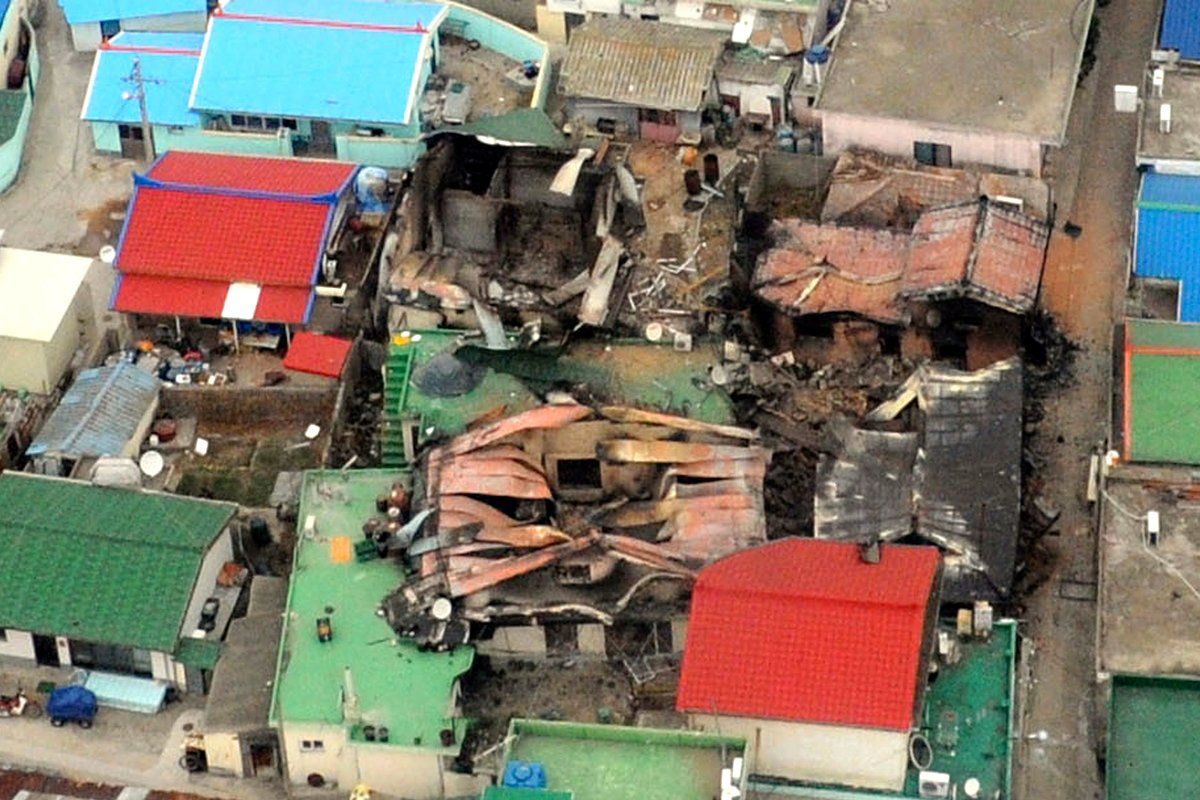
Since the two Koreas exchanged hundreds of artillery rounds Tuesday in an incident that killed two South Korean marines and two civilians, Seoul and Pyongyang have been blaming each other for instigating the attack. South Korean Defense Minister Kim Tae-young (who resigned Thursday after being criticized for what was called his poor response to the strike) says he suspects that two senior-level North Korean officers allegedly involved in the March sinking of the South's warship, Cheonan, were behind this week's attack. The North, on the other hand, claims that the South fired first.
Regardless of where the first shot came from, Pyongyang seems to have been setting the stage for this kind of attack as early as last year. For the past two years, the North Koreans have increasingly claimed that they were threatened by American and South Korean war games. So when the South conducted counter-proliferation drills with the United States last year, the North's Korean People's Army (KPA) declared that it will no longer be bound by the Korean Armistice Agreement and added that it "will not guarantee the legal status" of islands in disputed waters, including Yeonpyeong, the island that was shelled Tuesday. Translation: North Korea believes it is at liberty to attack should it feel provoked.
What's more, a relatively unnoticed North Korean military drill in August suggests that Tuesday's shelling may have been premeditated. On Aug. 9, the North fired about 100 artillery pieces toward South Korean waters. Later that day, North Korean drones were spotted hovering near Yeonpyeong. South Korean defense officials say they believe the North Koreans are using the drones to spy on the South's troops and weapons stationed on islands such as Yeonpyeong. That, along with the sequence of the exercise, suggests that the communist North has been gearing up for an attack on the island for some time.
The North Koreans are justifying this week's shelling as a "decisive self-defensive measure" in response to South Korean military exercises. It's a logic they've been using since the early 1990s; Pyongyang has used U.S. and South Korean war games as a pretext to step up its belligerency, citing the "hostile policies of the U.S. imperialists and the South Korean puppet regime."
This time, however, things could get worse. In the past, North Korean leader Kim Jong-il used the relatively moderate foreign ministry to keep the military in check so things don't spiral out of control. But recently, the military appears to be increasingly asserting itself on policy matters. In the past two years, military organs such as the Supreme Command of the KPA and the National Defense Commission have been issuing policy statements directed toward the outside world -- something that was mostly done by the foreign ministry in the past.
More frightening is that there are reasons to believe that the military has become so emboldened and powerful that Kim Jong-il may no longer be the absolute leader who calls the shots in Pyongyang. For one, the Dear Leader's physical and mental capacity has been declining—he reportedly suffered a stroke in 2008 and has grown frail since then. His third son and heir apparent, Kim Jong-un, lacks military credentials (although he recently and arbitrarily was elevated to the rank of general), and has to prove to the military that he has what it takes to be the next dictator-in-chief. That may explain why the Kims recently toured the base from which the shelling took place, to rubber-stamp the attack.
What's ironic is that part of the military's growing hubris could be of Kim Jong-il's own making. In the late 1990s, he initiated his Songun—or military-first—policy, in which the KPA was elevated to the highest position in the government. Under that policy, Kim Jong-il sprinkled his generals with Mercedes, missiles and nukes. Now, experts say the military has become so powerful that the Dear Leader no longer can rein in his generals. "The military-first policy has essentially reached its logical conclusion—that Kim Jong-il is no longer in a position to make the final policy decisions," says Kenneth Quinones, a former U.S. negotiator and Korea expert.
Meanwhile, the South Koreans will soon begin naval exercises in the Yellow Sea with the U.S. The exercises will involve the aircraft carrier USS George Washington, which the Obama administration dispatched as a way to signal its displeasure about the shelling. In the eyes of North Korea's generals, that may well constitute another excuse to get trigger-happy, again.
With Jerry Guo in New York
Uncommon Knowledge
Newsweek is committed to challenging conventional wisdom and finding connections in the search for common ground.
Newsweek is committed to challenging conventional wisdom and finding connections in the search for common ground.





